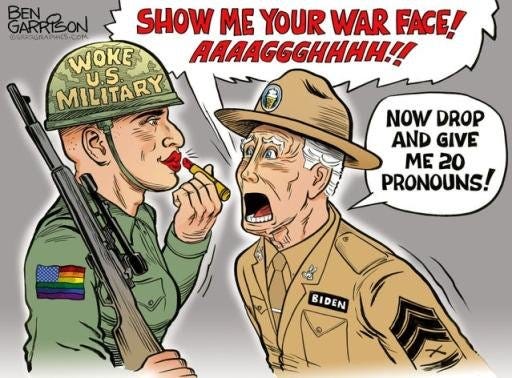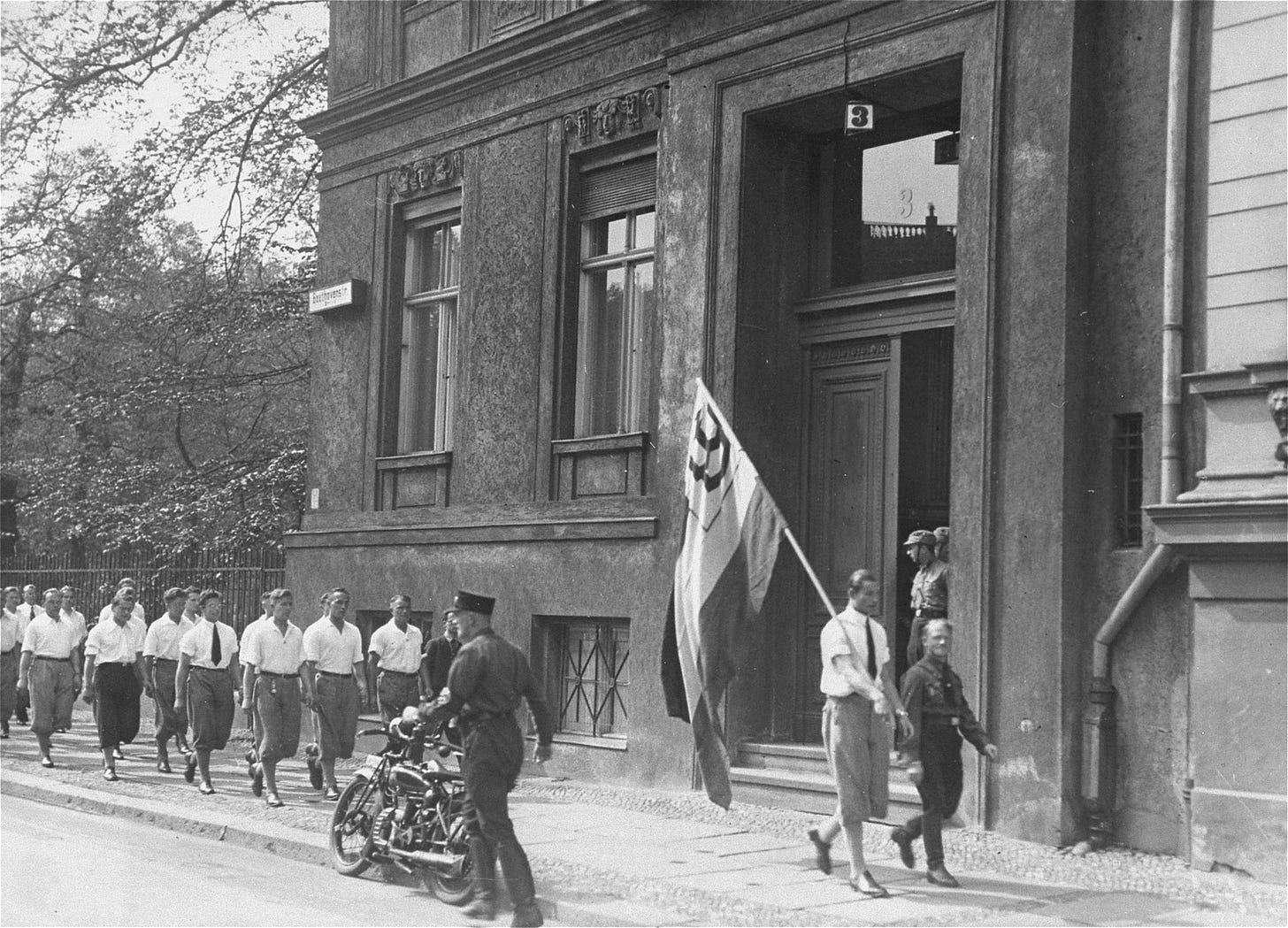The political landscape of other countries has always been used in the West for a proxy territory to hash out domestic politics, especially in the moments after crisis breaks, when informed knowledge is a little thin on the ground, like now. The wise thing to do, if you are uninformed, is to listen, not speak, but let's give ourselves a break - there is no real dopamine rush from observation online. So instead we see a mixture of good faith, bad faith and ugly faith attempts to read the crisis, as it were, from your standard misguided UK/Ireland or US/Cuba comparisons to a flurry of infographics, from teenage-bedroom-edgelord-Stalinists (I know whereof I speak) to “I could fix him” Putin-mommies to “Is this an aesthetic?” to “my only cultural reference is Harry Potter/Marvel/Star Wars” to the new worst thing on the internet, NFT bros. This is the exhausting economy of the always-online and the internet-poisoned, a toxic mix of the need for attention, novel positions with which to rise above the crowds, and a sludge of irony and sincerity. We all have our lenses through which we read the world, and it’s natural that when something new occurs that sits outside our frames of reference, we try to apply our ideological frames to understand it - usually unsuccessfully. Is the Russian Federation a communist state? Is Ukraine George Floyd? Is Boris Johnson Winston Churchill? Are NATO critics Neville Chamberlain? Is Putin Voldemort? If you only have a hammer, everything looks like a nail.
If it appears I’m mocking this habit, I’m not, or, only the more extreme outliers. In fact, I think I was doing something similar, and it was only on reading a few more pieces from outside my usual ideological frame such as this interview with Anatol Lieven that I could begin to create a new body of knowledge with which to understand how much I knew, and how much I didn’t know. Yet there was one hot take that I saw persistently sprouting up across much of the political spectrum, from wax cocaine drain Don Jr to former revolutionary communist, present clockwork contrarian and eternal forehead Brendan O´Neill. Faced with the most serious conflict in Europe since the Balkan Wars, and maybe even since World War II, faced with a resurgent Russia pushing for regime change or occupation in its sovereign neighbours, faced with potential atrocities, faced with a new sanctions regime crippling the Russian economy, potentially catastrophic fuel shortages, tanking markets, global geopolitical realignment, they asked the big question: did trans people do this?
It would be easy to file this particular hobby-horse alongside the other hottakes, but I think we’d be wrong to do so. To many, this argument might seem absolutely absurd, and on one level it is: of course, when Putin and the Russian military were strategising their campaign to invade Ukraine, the consideration of whether the presence of LGBTQ people within NATO forces might hinder or help their attack surely took up precisely zero minutes of their time. If in some bizarro world they did, then any strategic commander would surely have commented that while queer-bashing is good for domestic politics, in reality there’s no evidence that queers make inferior killing machines. In the immortal words of Mrs Coleman, “You know, that’s what I thought until I found out that Alexander the Great was a fag. Talk about gays in the military!”
To see the invasion of Ukraine as having any relevance to gender and sexual diversity in NATO military ranks would be an act of truly unhinged projection. But are any of these “commentators” actually making that point either? No, not really. Their attacks on LGBTQ people, and especially on trans people, with tired jokes about pronouns and rainbow-coloured tanks serve other functions. The first is obvious: every handwringing attack and “pronoun joke” aimed at trans people is intended to perpetuate their ongoing culture war campaign against trans rights, a profitable and potent line of attack which can’t be neglected just because of the distraction of geopolitical conflict. In fact, now is exactly the time to double-down on it, for fear that otherwise it might drop out of the headlines or be put in perspective.
But there’s a second and far more serious function of upping these attacks, these “jokes”, at the present moment, a function with a dark history and potentially dangerous consequences. They’re intended to suggest that sexual liberalism and the rights of LGBTQ people are things that fundamentally morally weaken societies, and that in weakening them, leave them open to destruction or conquest. Queerness has made us weak and Russia has seen that weakness and taken advantage in order to strike. They wink at a political position that will later be made explicitly, once the seed is sown: that tolerance for LGBTQ people is a weakness in the good times that becomes an existential risk in the bad. Sure, the queers might look weak, so weak they can’t possibly threaten you, Joe Public, who is just trying to pay your rent and be a nice enough guy - but they can weaken us as a nation so severely that our foes - and specifically our foes to the East - will be able to overrun us.
Perhaps if you’re that Joe Public, mild-mannered, tolerant enough and with no dog in the game, what I’ve just said will seem desperately hyperbolic. But the concept of supposed sexual immorality or gender deviance being an existential weakness within societies that opens them up to conquest from the East is a long and pernicious one in Europe that dates back to early Christian narratives of the decline of Rome. In the Enlightenment and Victorian era, contemporary anxieties around sexual immorality and especially homosexuality were retroactively projected onto the Roman Empire, and the “fall of Rome” attributed to a culture of licentiousness, ease and moral degeneracy of an Empire made weak by comfort and perversion. As history, it’s entirely untrue: Rome was at its most powerful at a time where it had largely adopted the more open Greek models of same-sex relationships, and at its territorial and military zenith under Trajan and Hadrian, who were hardly paragons of heterosexual fidelty. In fact, the fall of Rome occurred under Christian management, after centuries of increasing prohibitions on same-sex desire that started with passive male partners and spread to include all same-sex contact. First they came for the bottoms…
Still, this myth of decadent terminal decline has been persistent, from those early Christian propagandists up to the present day, where the rhetorically enticing but ultimately meaningless meme “Hard times create strong men, strong men create good times, good times create weak men, and weak men create hard times”, seems to have gained new traction in recent years, perhaps a symptom of a crisis in meaning for some heterosexual men about their role in society. Who knows. It’s not like survival, resilience, perseverance and strength in the face of violence are qualities in short supply in our society, it’s just they’re far more likely to be found in the daily lives of women, and especially women of colour and trans women, than in the lives of the rich straight white guys dropping tens of thousands of dollars on expensive combat weaponry and deep-sea scuba watches for the hot tub and tank-like trucks that will only ever see asphalt, all props for the lifelong theatre of “defending my family”. Yet it’s those men who are most concerned that sexual liberty and rights for trans and gender non-conforming people will be the back door through which the Russian Horde will enter.
Perhaps the most egregious example of this story of “depravity weakening the nation” emerged in Germany following not just the German defeat in WWI, but the economic and political crises that ravaged the republic in the decade and a half that came in its wake. Defeat in the war itself was attributed by the right to both weak liberal politicians and their ultimate supposed paymasters, Jews, who according to ancient antisemitic myth were pulling strings to undermine the strength of the nation. But in the years that followed, gender and sexuality were added to these internal threats, contagions and trends that were undermining German masculinity - and the nation’s ability to defend itself. In his controversial study of Freikorps popular literature in the Weimar Republic entitled “Male Fantasies”, sociologist Klaus Theweleit examined how gender and sexuality became sites of deep anxiety for the traumatised veterans who made up the Freikorps. The Freikorps were the far-right and fascist paramilitary groups that emerged at the end of the war to suppress leftism in Germany, and who developed a culture of extreme violence and social discipline that eventually transformed into the genocidal fascist martial culture of Nazi paramilitary organisations. Within the seemingly inexplicable chaos of defeat and social transformation, the feminine, the sexual, the homosexual and the transsexual became existential threats to the martial and bodily integrity of both the soldier, and the military nation. “The focus of repression in the soldier male is the “desire to desire”; concomitantly, the core of all fascist propaganda is a battle against everything that constitutes enjoyment and pleasure,” Theweleit writes. “Pleasure, with its hybridizing qualities, has the dissolving effect of a chemical enzyme on an armored body.” Theweleit determined that within these male fantasies, it was liquidity, fluidity, that most concerned and terrified these survivors of war, an inability to remain (ahem) rigid and the fear of being flooded, overwhelmed. He ties this deep anxiety to a number of political and psychological factors: the fear of women’s sexuality, the wartime fear of being drowned in mud, and the fear of Germany being overwhelmed by the Soviet Union and communism.
Sexuality, and especially “deviant” sexuality, was a moral weakness that undermined both the individual man-soldier, and also the spirit of the nation. Theweleit points out that, when the Nazis purged their own upper ranks, the accusations level against them were almost always sexual in nature, either of infidelity or homosexuality (in contrast to the Soviet Union, where for Stalin political subversion was the key threat). “They are conducted on the pretext of moral transgression. Why is this? Political opponents, it seems, can be defeated; the threat they pose to fascist stability and domination is minimal. The Nazi ego, by contrast, is substantially threatened by any potential decoding of what constitutes normative behaviour within Nazism; sexuality in the widest sense is percieved as dangerous.” There were Nazis who were homosexual, of course, such as Ernst Röhm, who saw in his homosexuality a more masculine form of martial life completely devoid of the terror of women, a life completely opposed to gender variance and the forerunners of contemporary forms of queerness. Yet he too was liquidated; the prohibition on deviant sexual and gender identities, on what today we might call queerness, was absolute in defence of the integrity of the Reich. Transgression that undermined “normative behaviour” was a danger to national defence, and the right in Weimar Germany were especially disgusted by, and angry at, the LGBTQI civil rights organisations and sexology clinics that had emerged in the Weimar Republic to secure rights for LGBTQI people and medical care (of a sort) for trans people.
So it should come as no surprise for us to learn that when the Nazis seized power in March of 1933 and immediately announced a campaign of public book burnings, their first target was the Institut für Sexualwissenschaft, the sexology clinic that specialised in helping LGBTQI people. The institute was founded and run by Dr Magnus Hirschfeld, a Jewish doctor and sexologist who pioneered medical understandings of the variance of sexual and gender identities. The library at the institute was ransacked; some 20,000 books, medical journals and archival documents documenting the history and lives of LGBTQI people and the study of sexual and gender identity were thrown into the street, piled up and burned. The urge to destroy that research, to remove the presence of LGBTQI people from society, and finally to murder LGBTQI people, was not an abstract hatred but deeply rooted in the idea that our presence fatally weakens society and opens it up to external threat and destruction.
Nazi youth from the Academy for Physical Exercise (Hochschule für Leibesübungen) parading before the Institut für Sexualwissenschaft, immediately before the destruction of its archives
It has taken generations to rehabilitate the legacy of such early pioneers, yet the accusation that LGBTQ people weaken national defence has never disappeared. In the 1950s in the United States, President Eisenhower issued Executive Order 10450, purging the State Department and federal government of homosexuals on the grounds that, according to a contemporary government report, “sex perverts in Government constitute security risks.” This was partly due to the threat of blackmail, but also down to the belief that homosexuals were both congenitally predisposed to subversion, and by their nature subversive in their mere existence. “Once the people of a Nation become complacent about moral degeneracy in its leadership, then that nation has not long to live” wrote Senator Joe McCarthy, the right-wing ideologue who, before launching the Red Scare, campaigned to purge US public life of homosexuals too, a campaign recounted in vivid detail in David K. Johnson’s fascinating book The Lavender Scare. Tabloid journalists supporting McCarthy’s purges were even more lurid: “Communism actively promotes and supports sex deviation to sap the strength of the new generation and make the birth of another problematical” claimed U.S.A Confidential. Today that would be a tweet.
As the LGBTQ rights movement began to win civil rights from the 1960s onwards in the UK and US, and especially in the first two decades of this century, there has, at times, been an inversion of this ideology. In recent years the presence of LGBTQ people in those societies, and within their militaries specifically, has been used to present a narrative that those rights are the inevitable result of Western society and liberalism, and the use of military force to spread those “tolerant values” around gender and sexuality has been used to justify imperialism and military conquest as a “civilizing force,” as elucidated by Jasbir K. Puar in her book “Terrorist Assemblages: Homonationalism in Queer Times”. I am not a subscriber to this belief, yet even advocates of this homonationalism should surely pause for reflection at how willingly and easily they are used as a punchline and bogeyman by their allies as soon as times get even a little tough, and it should stand as a salutary lesson as to the futility of the idea of liberation through integration into the fabric of a society that made you a deviant in the first place. My argument is not that the opening up of Western militaries towards recruits of diverse gender and sexual identities is a good thing; our response should be critical to all uses and abuses of those identities within nationalist discourses of all stripes. Yet that lesson won’t be learned by people who have claimed their rights by adopting such nationalist, integrationist positions and becoming mouthpieces for attacking trans people. It’s notable that many of those pushing this anti-trans position that “wokeness” has weakened “the West” - people like Andrew Sullivan, Darren Grimes or Andrew Doyle, the man behind the twitter parody account “Titania McGrath” - are all gay white men.
It’s not without irony that their own argument is mirrored in Putin’s anti-LGBTQ crusade which he launched a little over a decade ago, and which attempted to paint the increasing confidence of LGBTQ organising in Russia as part of a imported threat from the West that threatened the integrity of the nation. “Inciting a moral panic against queer people whose visibility was growing in his country provided the Russian president with an irresistible trifecta,” wrote Mark Gevisser in his book The Pink Line. “It was a way of flexing state muscles against the civic activism and liberal individualism of the cities. It was also a populist family values plank to curry favour with the Russian electorate and solidify a relationship with the church. And it was, of course, the sharpest way of defining the imperial Russia that Putin wished to establish, against the decadence of the West.” That final rhetorical argument is shared by those in the west who worry about the parade of “carnival freaks” undermining national defence, and by those who regard (entirely falsely) that the West is the natural and historical defender of LGBTQ rights and liberties.
It might seem that these braying numbskulls’ fears that Putin is rubbing his hands with glee at the prospect of a they/them NATO is prime idiocy designed to be cheap fodder for a culture war. Yet beneath their jokes lies a deep-seated fear that moral degeneracy is fatally sapping the strength of their nation, a fear that can easily metastasize across society in times of crisis when a scapegoat is required. We can see that’s as foolish as the idea that men bumming brought down the Roman Empire, but the fact that the fear has persisted for so long illustrates how deeply entrenched it is within the generalised fear of sexual and gender difference. Pledging loyalty to the myths of nationhood won’t counter this gender and sexual paranoia, this deep-seated conservative desire for a rigid gender order; it’s only by making anti-imperialism an intrinsic part of our LGBTQ politics that we can combat and dismantle an ideology which ties together masculinity with nationhood.
If you’d like to support my writing, please consider subscribing to this substack for just a few dollars a month, or sharing my work on social media.
Paid subscribers get access to the entire archive of 80+ ‘utopian drivel’ essays, including posts such as this piece on Jimmy Carr and free speech, this essay on ‘Pink Narcissus’ filmmaker James Bidgood, this on Freddie Mercury as “gay icon”, and this essay on housing and sex in law and culture,















